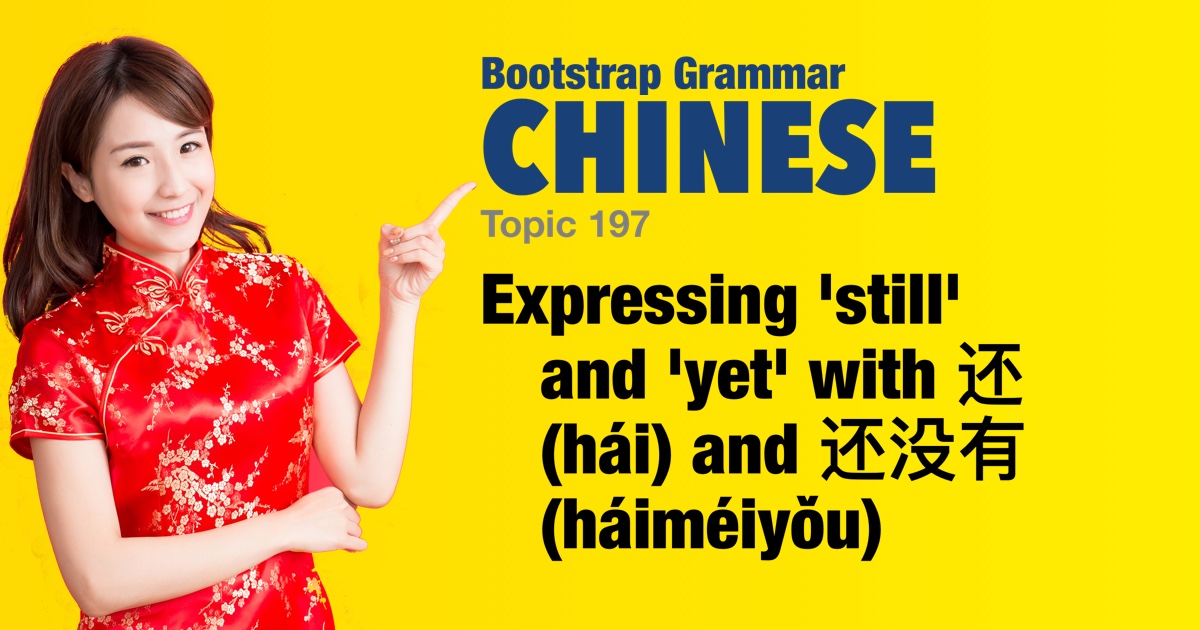Chinese grammar - Expressing 'still' and 'yet' with 还 (hái) and 还没有 (háiméiyǒu) |
|||
|
|||
In Chinese, 还 (hái) is used to express 'still,' and 还没有 (háiméiyǒu) is used for 'not yet.' They are commonly used to indicate ongoing actions or states. Notice that when used in the past tense, the completion marker 了 (le) is not required. |
| Examples: | |
|
他还在工作。
tā hái zài gōngzuò. He is still working. |
|
|
她还在家里。
tā hái zài jiā lǐ. She is still at home. |
|
|
她还没有告诉我。
tā háiméiyǒu gàosu wǒ. She hasn't told me yet.
|
|
|
她还没有准备好。
tā háiméiyǒu zhǔnbèi hǎo. She is not ready yet. |
|
|
我还没吃饭。
wǒ hái méi chīfàn. I still haven't eaten. |
|
|
他还没有到。
tā háiméiyǒu dào. He has not arrived yet. |
|
|
我还没有吃早餐。
wǒ háiméiyǒu chī zǎocān. I haven't eaten breakfast yet. |
|
|
天气还很冷。
tiānqì hái hěn lěng. The weather is still very cold. |
|
|
她还在等你。
tā hái zài děng nǐ. She is still waiting for you. |
|
|
我还没有看这部电影。
wǒ háiméiyǒu kàn zhè bù diànyǐng. I haven't watched this movie yet. |
|
|
你还在读书吗?
nǐ hái zài dúshū ma? Are you still studying? |
|
|
我还没决定。
wǒ hái méi juédìng. I still haven't decided. |
|
|
他还没有出发。
tā háiméiyǒu chūfā. He hasn't set off yet. |
|
|
她还没有回来。
tā háiméiyǒu huílái. She hasn't come back yet. |
|
|
你还没有完成作业。
nǐ háiméiyǒu wánchéng zuòyè. You haven't finished your homework yet. |
|
|
孩子还没有回来。
háizi háiméiyǒu huílái. The child hasn't come back yet. |
|
|
我们还有时间。
wǒmen hái yǒu shíjiān. We still have time. |
|
|
我们还没有决定时间。
wǒmen háiméiyǒu juédìng shíjiān. We haven't decided on the time yet. |
|
|
他们还在讨论这个问题。
tāmen hái zài tǎolùn zhè ge wèntí. They are still discussing this issue. |
|
|
我们还没有决定去哪儿。
wǒmen háiméiyǒu juédìng qù nǎr. We haven't decided where to go yet. |
|
 |
|



